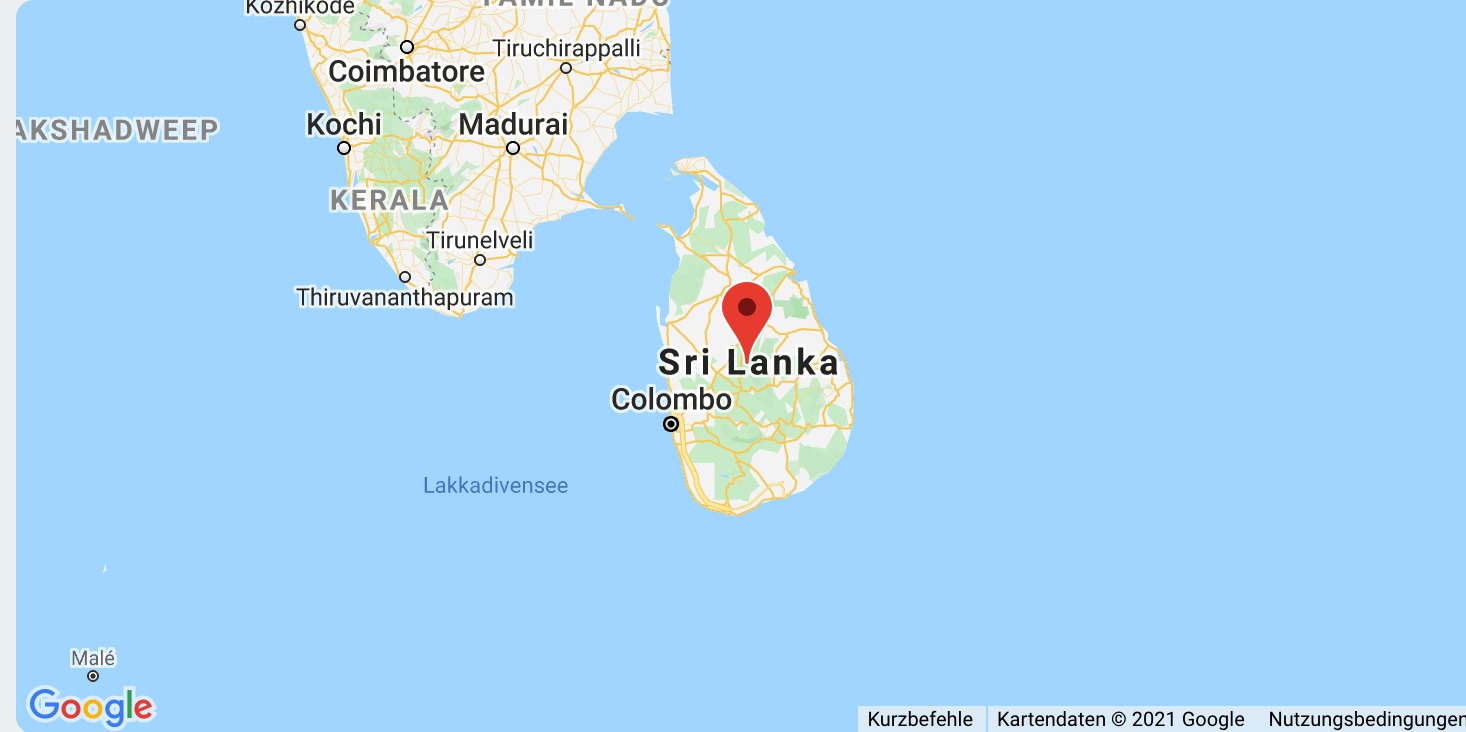Background
Every year, more than 200,000 people around the world receive the diagnosis of leprosy. This ancient disease is far from eradicated – especially not in Sri Lanka, where around 2,000 new cases are diagnosed every year. According to the World Health Organization (WHO), Sri Lanka is one of the few countries in the world with more than 1,000 cases per year. On this island nation, the regions of Ratnapura and Polonnaruwa routinely see the highest numbers of newly registered leprosy diagnoses. Although Sri Lanka has an extensive and free public health system, efforts to combat leprosy face a range of significant obstacles.
A lack of knowledge about the first signs of the disease and the severe stigmatisation of patients and their families mean that people rarely submit themselves voluntarily for examination. Against this backdrop, active case finding is required in order to identify cases at an early stage and to minimise the likelihood of the infection from spreading in the respective communities. In addition, many of those affected are unable to afford the cost of travel to the nearest health centre, or the side effects of the medication means that they do not follow the prescribed treatment or stop it altogether. Furthermore, health professionals frequently lack the necessary expertise to diagnose and treat leprosy.
The Project
In cooperation with the national government, FAIRMED is combating leprosy and its associated stigmatisation. We coordinate active case-finding in schools, prisons, factories and the military, and conduct door-to-door campaigns in high-risk areas. Alongside, we ensure that health workers are suitably trained in the early detection and treatment of leprosy. Throughout, the project works to reduce the stigma faced by leprosy patients through awareness-raising activities among the general public. Among other measures, we produce educational materials for health workers, create explanatory comics for local newspapers and organise theatre shows for schoolchildren, which playfully explain how leprosy is transmitted and how to identify the first signs of the disease, and emphasise how other complications and consequences can be avoided entirely through early treatment.
Taken together, these measures help to ensure that those affected are identified and treated in good time, so that the disease does not result in permanent disabilities. For those already suffering from a disability, we assist in the creation of self-help groups. Throughout, the involvement of the entire community facilitates social integration. In other countries such as India, FAIRMED has already seen exceptional success through the adoption of these kinds of self-help groups.
Objectives and Activities
The main objective of the project in Sri Lanka is to contribute to the fight against leprosy and the stigmatisation of its victims. To this end, the project is pursuing three specific aims that are realised through the following activities, among others:
Early detection, active case finding and treatment of leprosy cases
Important figures in the community (e.g. teachers, local politicians, religious leaders) are informed about lepro-sy-related issues such as treatment options and early detection.
Organisation of training for health workers in the early detection and treatment of leprosy.
Organisation of screening programs: through door-to-door actions, mobile clinics and health camps, people in high-risk areas and vulnerable groups (e.g. schoolchildren) can be identified and examined.
Awareness-raising campaigns: comics in newspapers and on social media, posters, murals and display boards help to educate the general public about leprosy and its consequences.
Introduction of an online database system that tracks leprosy cases. At clinics, all patient data is recorded in a database, which supports patient follow-up care and facilitates the prompt treatment of aggravations (e.g. infections).
Prevention of permanent disabilities
FAIRMED ensures the availability of health services that meet the needs of people with leprosy-related disabilities (e.g. dressing changes, special footwear, etc.). This is to prevent disabilities from becoming irreversible.
Health centre personnel are trained in working with people with leprosy-related disabilities.
Sustainability and Monitoring
All FAIRMED projects are implemented in cooperation with the local official agencies and with the inclusion of the population on the ground. The regional FAIRMED country offices are staffed exclusively by local employees. With this approach, and aided by consistent monitoring, problems can be identified in a timely manner, causes can be analysed, and methods and objectives can be adapted where necessary. The direct integration of health ministers and partner organisations also ensures that projects can be transferred at a later point and continued without the support of FAIRMED.
Beneficiaries and Budget
The project provides direct support to all people affected by leprosy within the project area. In addition, family members and the residents in the districts of Ratnapura and Polonnaruwa benefit from leprosy prevention measures and the reduced likelihood of the development of leprosy, as well as aware-ness-raising programs for early detection and treatment.
No one should suffer or die from a curable disease
Suriyarachchi Nayani • Country Coordinator Sri Lanka
Support FAIRMED